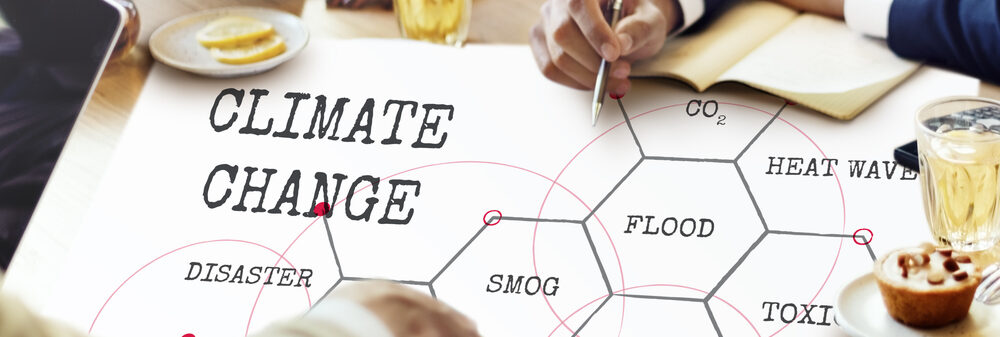
The Dahdaleh Institute for Global Health Research at York University will host a symposium to explore how human activity is pushing ecological limits to a breaking point, and climate change is a fundamental threat to human life.
Taking place on Nov. 24 from 10 a.m. to 4:30 p.m., both in person at the Keele Campus and online, the Planetary Health for a Planetary Emergency symposium aims to bring together scholars from the Dahdaleh Institute for Global Health Research and across York University who work at the intersection of climate change and health, to discuss the potentials of planetary health as a driver of just climate action.
This event will also launch the Dahdaleh Institute Planetary Health Research Council which supports a collaborative research community of faculty, postdoctoral Fellows and graduate students committed to planetary health research at York University and beyond.
The event draws attention to the need for clear associations between climate change and health, and to develop critical problem-solving interventions and advocate for climate action that advances well-being for all. The symposium will explore questions, such as: How do we do this while holding a critical view of the systems and structures which have led us into this climate catastrophe, including the ideologies of colonialism and capitalism that underpin the modern era? How do we advance effective and equitable solutions for planetary health that work against these systems and structures instead of upholding them?
The day’s agenda will include panel discussions with three themes featuring guest speakers.
Water: This panel explores the role water plays at the confluence of environmental and human health. Speakers will discuss efforts to support vital biological and social functions of water in the face of our rapidly changing climate and how such efforts might be positioned to work towards more just, sustainable and integrated water management.
Speaking on the topic of water will be: Deborah McGregor, a Canada Research Chair in Indigenous Environmental Justice and a professor cross-appointed with Osgoode Hall Law School and the Faculty of Environment & Urban Change at York University; Sapna Sharma, an associate professor in the Department of Biology at York University and York Research Chair in Global Change Biology; and Byomkesh Talukder, an assistant professor at the Department of Global Health at Florida International University. Moderating this panel will be Caroline Diana Duncan, a PhD candidate in civil engineering at York with a strong focus on optimizing drinking water in the Arctic using participatory approaches to system dynamics modelling.
Land: This panel examines the role of land in achieving planetary health, taking a wide view across issues of food security, extractivism, urbanization and conservation. This includes examples of how land is inherently interconnected with people and the environment and how access to land and tenure rights are themselves a determinant of human and environmental health.
Discussion on topics related to land will be led by: Dayna N. Scott, an associate professor and York Research Chair in Environmental Law & Justice with Osgoode Hall Law School at York University where she is also cross appointed with the Faculty of Environmental & Urban Change; James Stinson, a postdoctoral Fellow in Planetary Health Education at York University, cross appointed to the Faculty of Education and the Dahdaleh Institute of Global Health Research; Raphael Aguiar, a PhD candidate in the Health Policy and Equity program at York University and a Dahdaleh Global Health Graduate Scholar; and Sarah Rotz, an assistant professor in the Faculty of Environmental & Urban Change. This panel will be moderated by Nilanjana (Nell) Ganguli, a PhD student in the Faculty of Environmental & Urban Change.
Air: This last panel addresses how air is brought into our approaches to planetary health, drawing together a range of fields related to emissions reduction, human well-being, air pollution and climate adaptation. Speakers will consider how air pollution disproportionately impacts low income and marginalized populations as well as the climate policy synergies of tackling air pollution that both damages health and impairs ecosystems.
Participating in this discussion are: Cora Young, an associate professor and the Rogers Chair in Chemistry at York University; Eric B. Kennedy, an associate professor and area coordinator of the Disaster and Emergency Management program at York University; and Jean-Thomas Tremblay, an assistant professor of environmental humanities at York University. Moderating this panel will be Hillary Birch, a PhD student in the Faculty of Environmental & Urban Change at York University, where she is a SSHRC doctoral Fellow.
For more information, or to register, visit the event webpage.
Article originally published in the November 7, 2023 issue of Yfile

